9 Foods to Avoid to Lose Belly Fat FASTER
Check out my client Jake’s transformation where he lost a lot of weight and gained a more fit physique by implementing the right diet and workout tips in his routine!
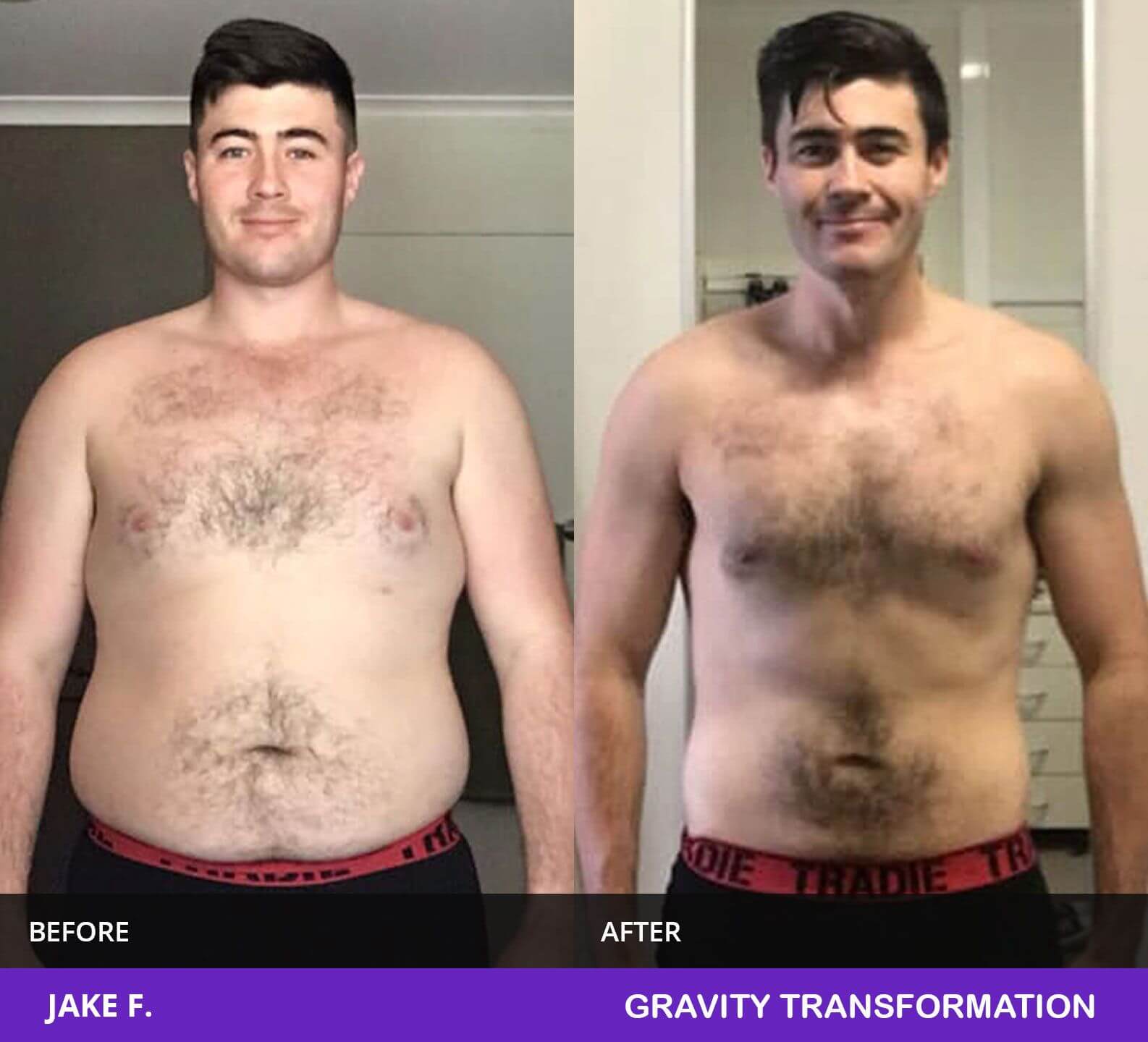
If you want to lose weight or burn stubborn belly fat, then you must limit these 9 highly fattening foods.
Some of these are even considered healthy. But they still make you gain weight due to their high caloric content.
Don’t be fooled. Read this article and learn which foods are making you fatter and which ones are helping you get that flat stomach.
Whenever you eat food the calories and nutrients that you take in are used to power your brain, repair broken down muscle tissue and provide energy for all your cells and organs to function.
However, once your energy needs are met, all excess calories are converted to fat. This is stored around various places throughout the body especially around the stomach, love handles, and hips.
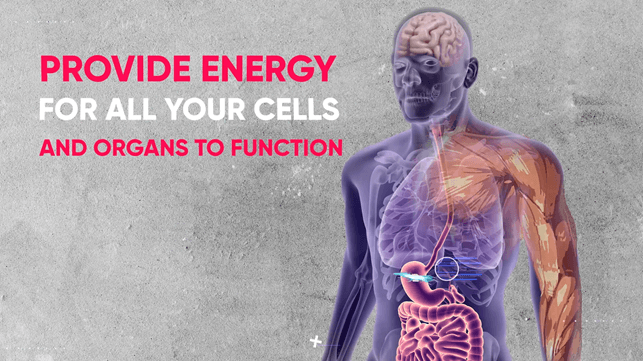
This whole process follows the basic principles of calories in versus calories out. But certain foods are more likely to lead to the overconsumption of calories and in turn more fat storage.
So I want to go over 9 of the most highly fattening foods to avoid or limit if you want to maintain a flat stomach.
#1 Soda
And the number one food, or beverage I should say, that’s highly fattening is soda.
Soda is a much bigger problem than you might think. The average American consumes 270 calories of added sugars every day, and most of these extra calories come from drinking soda.
These liquid sugars end up adding up to almost 1900 extra calories per week. This is about equivalent to the number of calories you would burn if you ran 12-15 miles.
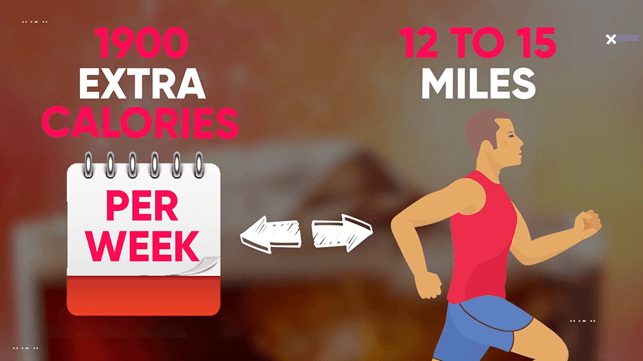
So that’s going to be tough to burn off to say the last. And the problem with sugary calories is that they’re ineffective at satisfying hunger. So they typically end going on top of the calories people already consume. (1)
That’s why people that drink soft drinks and other sugary beverages tend to weigh more than those who don’t. Evidence from this comes from two systematic reviews. (2)
Therefore, I recommend that you replace soda with healthy beverages like (sparkling) water, tea, or coffee.
You can also add some artificial sweeteners like stevia if you crave that sweet taste.
Various studies show that substituting sugary foods and drinks with artificially sweetened alternatives lowers calorie intake and aids weight loss. (3)
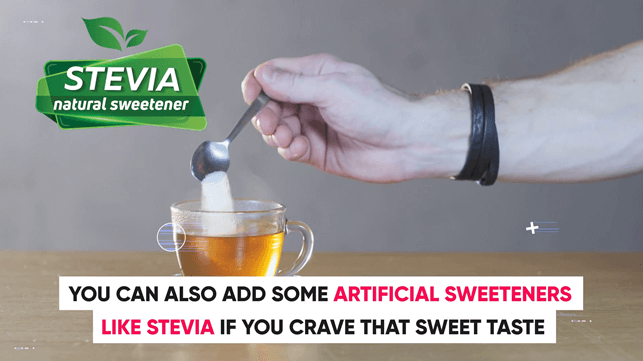
And most human studies indicate that artificial sweeteners are generally safe when the maximum recommended amount isn’t exceeded. (4)
So 2-3 packets of stevia per day should be okay. But don’t go overboard, as having too much can enhance sugar cravings.
#2 Beer
Next is beer. The term “beer belly” exists for a reason. Beer is one of the beverages that are most likely to cause you to gain excess pounds.
There are many reasons why beer is likely to make you pack on weight.
First of all, alcohol is converted to acetate in the body, mostly in the liver.
As acetate enters your blood, fat burning becomes highly suppressed throughout your entire body. (5)
As a result, the fatty acids that you eat are much more likely to be stored as body fat instead of being burned off.
On top of that, acetate itself can also be converted into fat.
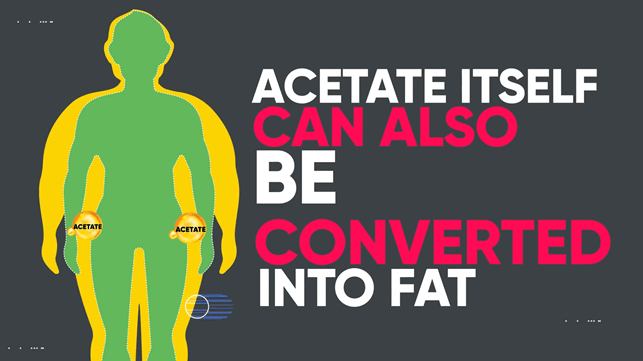
Another issue with drinking alcohol, in general, is that it’s often paired with high-fat junk food like late-night McDonald’s.
And the excess calories from drinking alcohol don’t seem to fill you up at all.
Contrary to protein, carbs, and fats, alcohol doesn’t suppress appetite, but it may even increase it instead.
A recent 2019 systematic review and meta-analysis illustrates this. Researchers concluded that adults don’t compensate properly for the alcohol calories they take in by eating less.
Moreover, a relatively small amount of alcohol can lead to an increase in food consumption (6).

Now, when you compare alcoholic drinks, beer is one of the most likely alcoholic beverages to cause fat gain.
That’s because, generally speaking, beer contains 150 calories per drink. Wine contains 125. And hard clear liquors contain about 100 calories.
#3 Croissants
Croissants are tricky because they don’t look that bad calorie-wise. But back in 1995, a group of researchers wanted to see which foods are most satiating. (7)
To do that, they evaluated 38 foods, separated into six categories – fruits, bakery products, snacks, carb-rich foods, protein-rich foods, and breakfast cereals. (8)
They gave each of the foods to groups of people in portion sizes of about 240 calories. The scientists then took a satiety rating from the participants every 15 minutes over 120 minutes. (9)

After that, they were free to eat as much as they wanted from a standard range of foods and drinks.
To evaluate how satiating each food was, the scientists calculated what they called the “satiety response curve” for each group. They then compared it to white bread, which had a satiety score of 100.
So basically foods that scored higher than 100 would be more satiating than white bread. And if it scored lower, it would be less satiating.
Ultimately the results indicated that of the 38 foods they evaluated, croissants were found to be the least satiating.
They scored 47 on the satiety index. This makes croissants less than half as satiating as white bread, which already is a low-satiety food. (10)
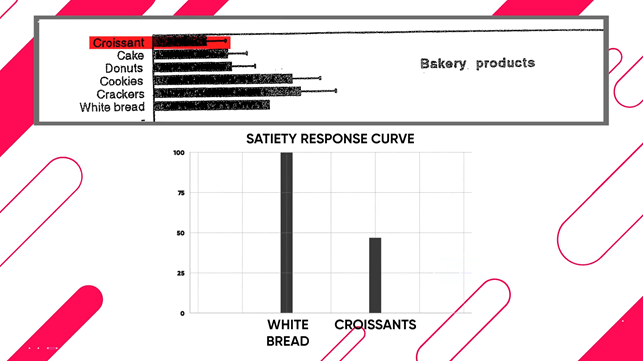
In other words, if you eat croissants, it may be tougher for you to control your calorie intake. This is why this food can be highly fattening.
Now, if you’re looking for a carbohydrate alternative to croissants, you could try potatoes. That’s because the same study found them to be seven times more satiating than croissants. (11)
#4 Cookies
Cookies are most often made from ingredients that don’t’ fill you up, like flour, sugar, and butter.
Plus, they usually have other high-calorie tasty ingredients, like chocolate chips. That’s why cookies are highly “fattening”.
One study found that if overweight people eat 2 cups of watermelon daily, they will consume fewer calories than usual. Over time, this results in fat loss.
Conversely, if people consume the same number of calories as cookies, they tend to overeat and gain fat. (12)

Studies even show that “cookie consumption is likely to significantly increase blood pressure and body fat”. (13)
So, if you want to lose weight, go for natural sweets like watermelon. Not only will that help you control your calorie intake, but it’ll also leave you feeling fuller.
In the process, you’ll also end up consuming a broad spectrum of beneficial micronutrients.
#5 Cooking oil
Cooking oil is another sneaky high-calorie food. Now don’t get me wrong, dietary fat is essential for health.
And cooking oils, like avocado oil and olive oil, offer a broad range of benefits. But there’s one problem…
Cooking oils belong to the most calorie-dense food group available while having only a minimal effect on satiety.
Plus, it’s easy to use a lot more cooking oil than what’s needed and make food taste great.
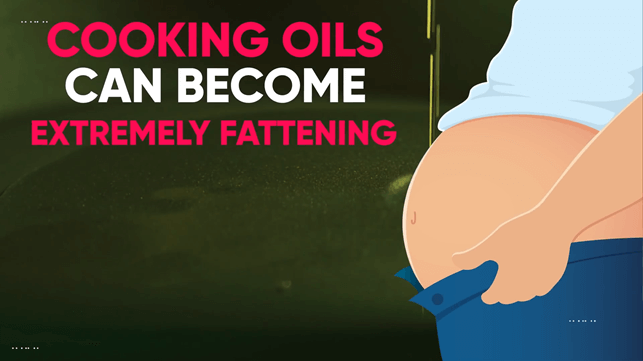
Using too much oil is actually the number-one way that cooking oils can become extremely fattening.
For example, since 1tbsp of olive oil has 119 calories, adding three to your daily meals means ending up consuming an extra 357 calories.
Now, this doesn’t mean that you have to avoid cooking oils, especially the healthy ones like avocado and olive oil.
But it does mean that it’s important to be careful with how much oil you use.
One excellent tool that can help with this is an oil mister. It can significantly reduce the amount of oil that ends up in your pan.
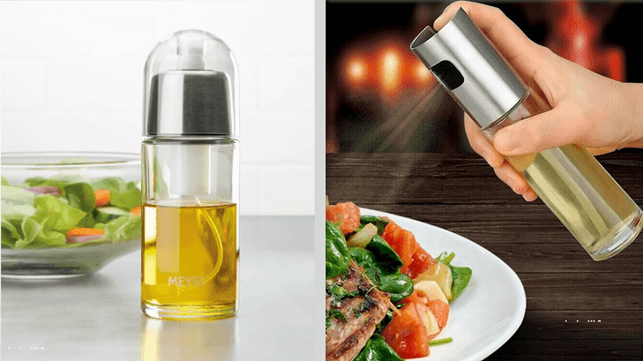
Of course, there are many ready-to-use cooking sprays that you can get at the grocery store. But generally, they’re not ideal because they usually contain highly processed and unhealthy vegetable oils like canola or rapeseed.
Instead, I’d recommend buying a separate oil mister and then adding either avocado oil or olive oil yourself.
#6 French fries
Next, we have something that goes hand in hand with beer – French fries.
With a typical 5-ounce serving containing about 427 calories, French fries can definitely be considered highly caloric junk food.
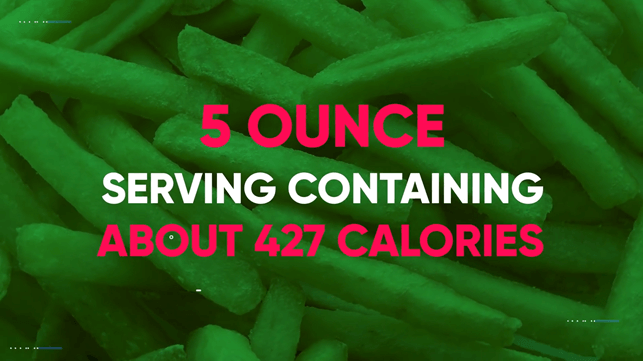
Combine that with the fact that French fries usually come along the rest of your happy meal, like a double cheeseburger and soda, and you’ll see how you can easily add hundreds of extra calories on top of them.
Aside from the fact that French fries are highly caloric without filling you up, they also have another downside. They tend to come with a lot of salt.
Now, sodium itself doesn’t cause fat gain. It’s calorie-free. But when in excess in your body, it can cause weight gain by forcing an increase in overall water retention.
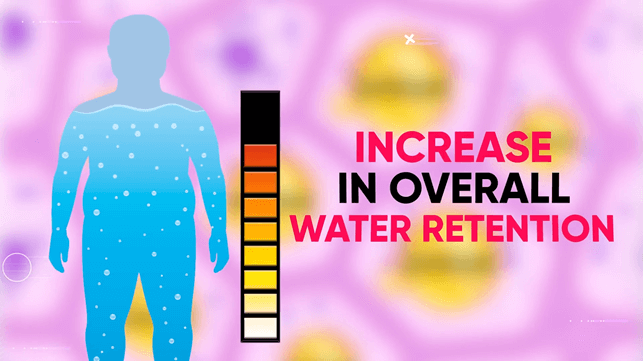
Even if you’re not concerned about water weight, sodium can promote fat gain indirectly.
That’s because eating more salt can cause you to consume more calories, making you more likely to go into surplus.
For example, a 2009 study introduced what the researchers called the “Salted Food Addiction Hypothesis.” (14)
They claimed that salted foods could be addicting because they stimulate opioid and dopamine receptors in the brain.
The researchers also noted that not consuming as much salt could cause withdrawal symptoms.
This is one reason why many people have strong cravings for junk food like French fries.
#7 Pizza
We can’t forget about Pizza! Pizza is highly fattening for the same reason that French fries are. It scores very high in fat, calories, and sodium.
For example, a 12-inch pizza, or a medium-size pie, has on average a whopping 1,835 calories.
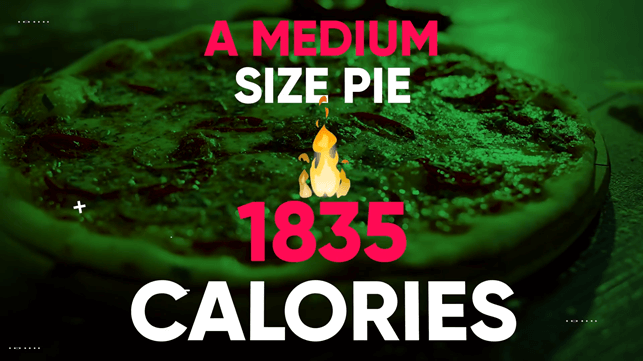
When I was in college I routinely saw people who would wolf down a whole medium pie to themselves after a night of drinking.
Now imagine that you wind up eating two of these medium pies throughout the week.
Well, that would be just about enough calories to gain a whole pound of fat.
Add the calories from many beers and sodas and you might end up with over 3,500 calories in one night.
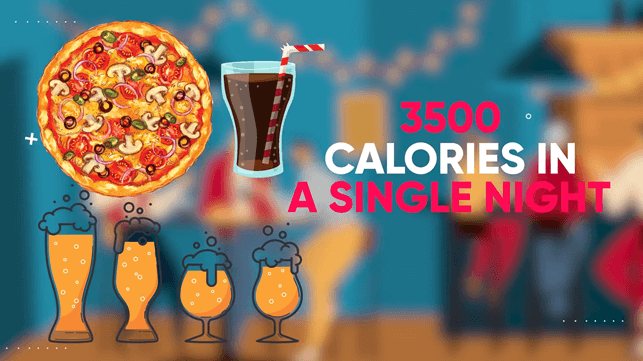
It might sound completely crazy, but alcohol makes you do some utterly insane things.
So either get better at managing your willpower after drinking, or avoid these very high-calorie foods altogether.
#8 Peanut Butter
For this one, you don’t need alcohol to achieve overconsumption. I’m talking about peanut butter.
Now, peanuts aren’t inherently bad. In fact, studies link peanut consumption to reduced body weight and improved health. (15)
However, when it comes to peanut butter, it’s very easy to eat way more calories than you would if you were eating regular peanuts.
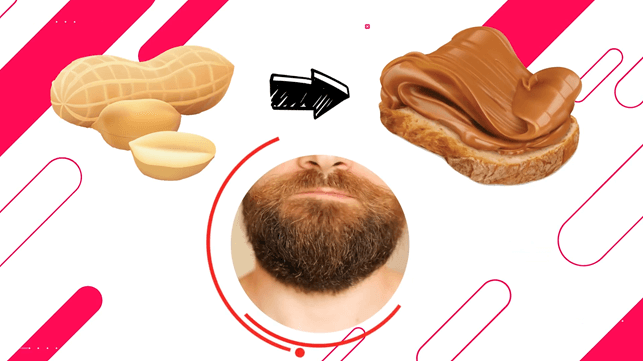
This is because turning peanuts into peanut butter removes the chewing resistance that whole peanuts have.
Moreover, many peanut butter lovers like to spread it in thick layers on toasts or apple slices.
And that peanut butter adds much more calories to the toast or apple than you may think.
Sometimes it can even double or triple the number of calories from a plain apple or toast.
One last issue with peanut butter is that most brands are commercially prepared. These often contain vegetable oils, sugars, and salt. All of these make the food tastier, but less satiating, and higher in calories.
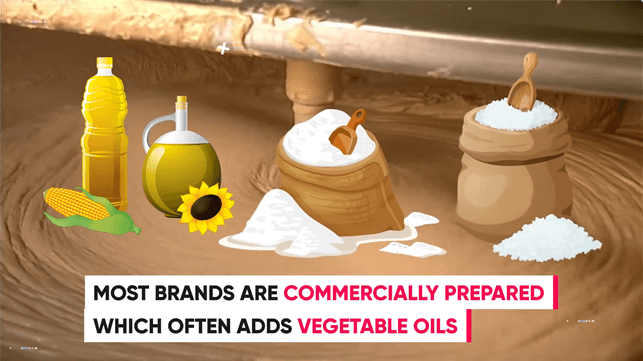
In a sense, there’s nothing wrong with the natural varieties of peanut butter. Just make sure that you stay within your set caloric target.
The real problem is eating too much peanut butter. That could make it almost impossible to stay within the desired calorie range and avoid fat gain.
#9 Potato chips
Last but not least, we have potato chips. Here’s an interesting study about their consumption.
In this study, Harvard Medical School scientists assessed more than 120,000 men and women over 20 years.
They looked at how particular changes in their lifestyle would influence their body weight over four-year incremental intervals. (16)
What they found was very interesting.
The lifestyle change that was most strongly associated with gaining weight over time (four years) was increasing the number of potato chips eaten. (17)
So why were potato chips so strongly associated with weight gain?
Well, one reason is that they’re very high in calories for the volume they occupy in your stomach.
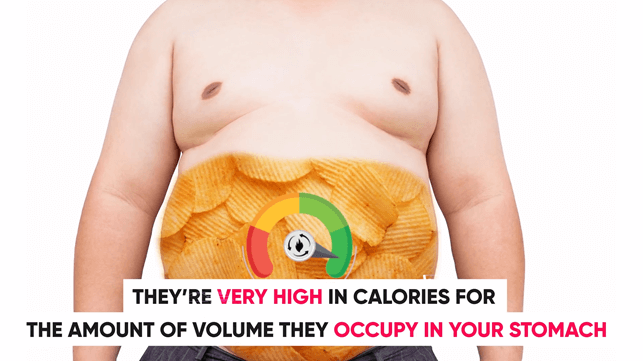
One hundred grams of potato chips contain, on average, a hefty 536 calories. But that’s not all.
Another important factor is that snacks like potato chips are typically paired with watching television, especially late at night.
Therefore, it’s no wonder that the researchers found increasing potato chips intake tends to cause weight gain.
Concluding notes
So those are the 9 foods that you shouldn’t necessarily be afraid of but definitely limit in your diet to get lean and maintain that look.
Of course, all of these foods can be included in moderation. But be careful because it’s easy to go overboard and gain body fat in the process.
That about wraps it up. I hope you guys enjoyed this article.
Now, if you want to skip all the trial and error that comes with losing body fat and packing on muscle, try my 6-week shredding program.
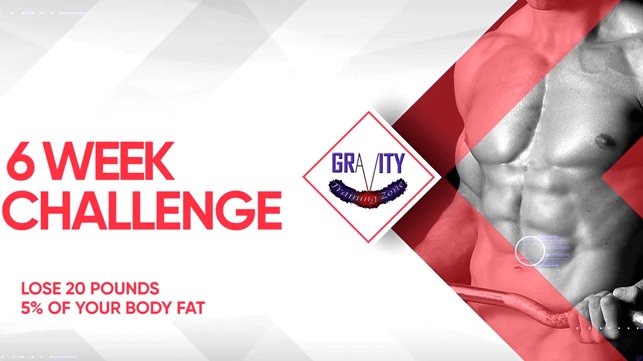
It provides a done-for-you step-by-step plan that details exactly what you should eat and what you should do at the gym.
All only 3 days per week, to get into the best shape of your life.
With a full exercise library, a recipe book, and a dedicated personal coach included, losing weight and burning fat is made easier than ever.
That’s why so many of my clients are losing at least 20 pounds or 5 percent of their body fat in only 6 short weeks.
To find out more click the link below.
References
- Sugary calories are ineffective at satiating hunger and thus typically end adding to the calories people already consume.
https://www.bmj.com/content/346/bmj.e7492
- Individuals who drink soft drinks and other sugary beverages tend to weigh more than those who don’t. Evidence from two systematic reviews and meta-analyses.
https://www.bmj.com/content/346/bmj.e7492
https://pubmed.ncbi.nlm.nih.gov/23966427/
- Various studies show substituting sugary foods and drinks with artificially sweetened alternatives lowers calorie intake and aids weight loss.
https://pubmed.ncbi.nlm.nih.gov/24862170/
https://pubmed.ncbi.nlm.nih.gov/23364015/
https://pubmed.ncbi.nlm.nih.gov/12324283/
https://pubmed.ncbi.nlm.nih.gov/2008866/
https://pubmed.ncbi.nlm.nih.gov/23966427/
- Artificial sweeteners are generally safe when the maximum recommended amount is not exceeded.
https://pubmed.ncbi.nlm.nih.gov/17828671/
https://www.ncbi.nlm.nih.gov/pmc/articles/PMC3198517/
https://pubmed.ncbi.nlm.nih.gov/19464334/
https://pubmed.ncbi.nlm.nih.gov/25842566/
https://www.ahajournals.org/doi/full/10.1161/CIR.0b013e31825c42ee
- Alcohol is converted to acetate in the body, particularly in the liver. And as acetate enters your blood, fat burning is majorly suppressed throughout your entire body.
https://pubmed.ncbi.nlm.nih.gov/10539756/
- “Adults do not compensate appropriately for alcohol energy by eating less. And a relatively modest alcohol dose may lead to an increase in food consumption.”
- 1995. Researchers from the University of Sydney, Australia, wanted to see which foods are most satiating.
https://pubmed.ncbi.nlm.nih.gov/7498104/
- “38 foods separated into six food categories (fruits, bakery products, snack foods, carbohydrate-rich foods, protein-rich foods, breakfast cereals)”
https://pubmed.ncbi.nlm.nih.gov/7498104/
- “Groups of 11-13 subjects” and “Isoenergetic 1000 kJ (240 kcal) servings”.
https://pubmed.ncbi.nlm.nih.gov/7498104/
- See Figure 3 for “croissant” satiety value.
https://www.researchgate.net/publication/15701207_A_Satiety_Index_of_common_foods
- See Figure 3 for “potatoes” satiety value.
https://www.researchgate.net/publication/15701207_A_Satiety_Index_of_common_foods
- If overweight people eat 2 cups of watermelon daily, they generally end up consuming fewer calories than they were before. Over time they’ll lose fat. But if people consume the same number of calories as cookies, they tend to overeat and gain fat.
https://www.mdpi.com/2072-6643/11/3/595
- “Cookie consumption significantly increased blood pressure and body fat”.
https://www.mdpi.com/2072-6643/11/3/595
- “Salted Food Addi[c]tion Hypothesis”.
https://pubmed.ncbi.nlm.nih.gov/19643550/
- Studies link peanut consumption to reduced weight and improved health.
https://pubmed.ncbi.nlm.nih.gov/23827129/
https://pubmed.ncbi.nlm.nih.gov/26787930/
https://pubmed.ncbi.nlm.nih.gov/24939459/
https://pubmed.ncbi.nlm.nih.gov/12444862/
- Over 1986, Harvard Medical School scientists assessed 120,877 US individuals free of chronic diseases and not obese at baseline.
https://pubmed.ncbi.nlm.nih.gov/21696306/
- “4-year weight change was most strongly associated with the intake of potato chips (1.69 lb)”
My passion for fitness began when I was 14 years old. I naturally fell in love with training and haven’t stopped since. At 18 years I acquired my first personal training certification from ACE after which I opened my first of 3 transformation studios in 2011. I love to share my knowledge through personal training, my online courses, and youtube channel now with over 3,000,000 subscribers! I can happily say that we've helped over 15,000 people get in great shape over the years. I'm always here for my customers so if you need help don't hesitate to send your questions to support@gravitychallenges.com

